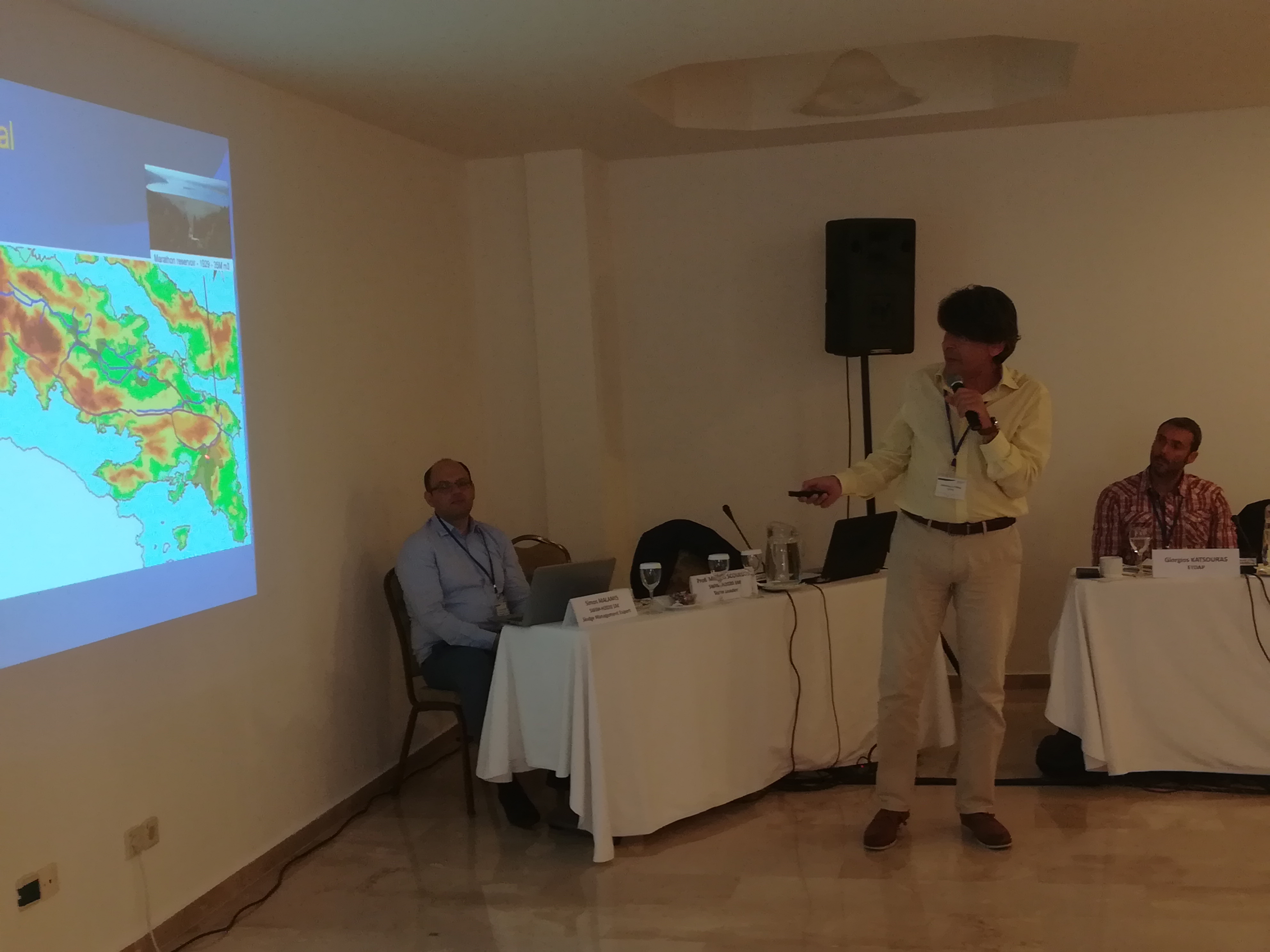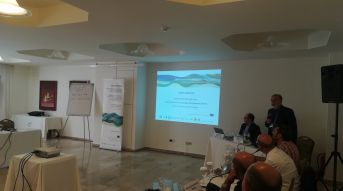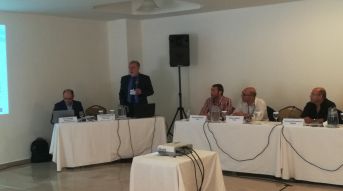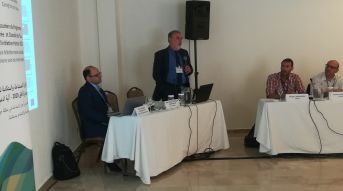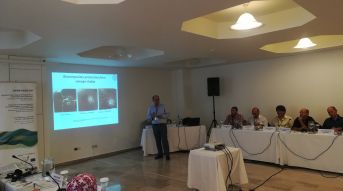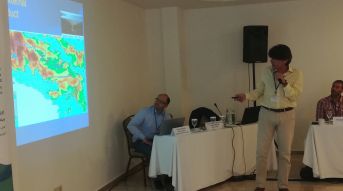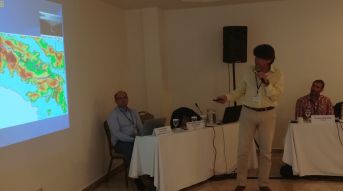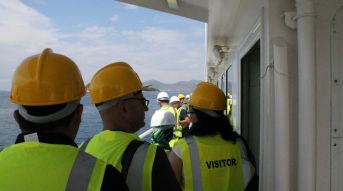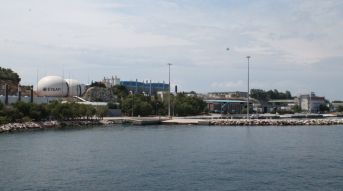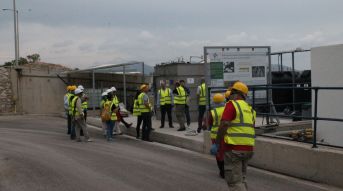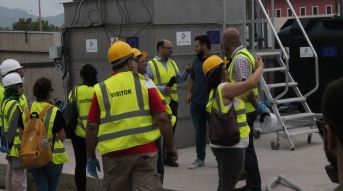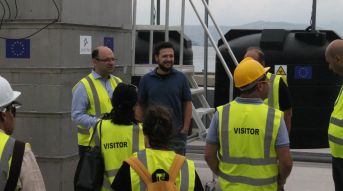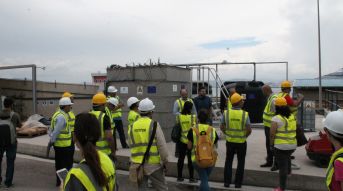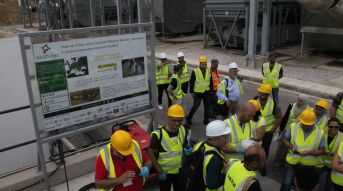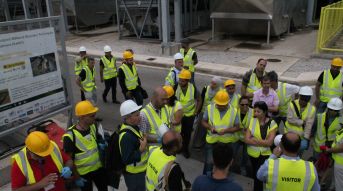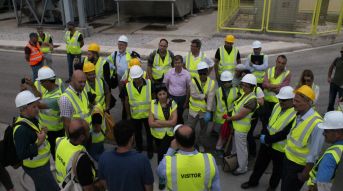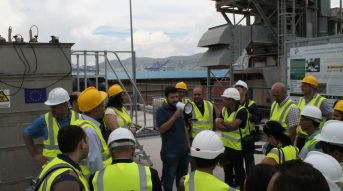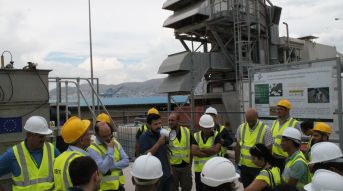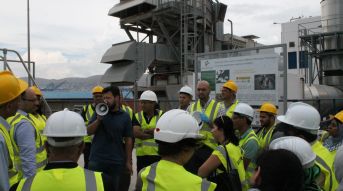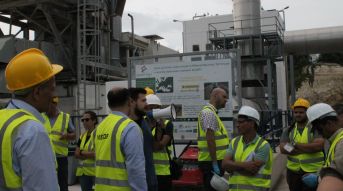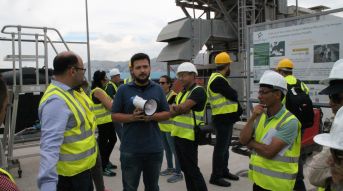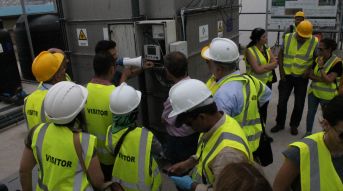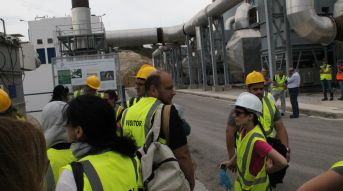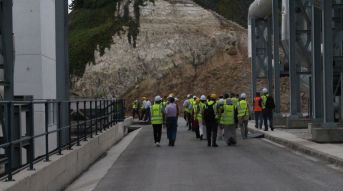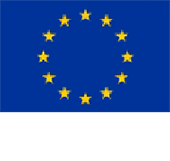SMART-Plant was presented at the “Study Tour: Visit to State-of-the-Art Sludge Management Systems and Peer to Peer Exchange for Stakeholders from the South Mediterranean Countries” under the SWIM-H2020 SM Project.
A Study Tour to the island of Psytallia, off the port of Piraeus, where fully operational state-of-the-art sludge management facilities covering the Athens Metropolitan Area are situated, was organized by the EU funded SWIM and Horizon 2020 Support Mechanism with the support of the Athens Water Supply and Sewerage Company (EYDAP) on 25-27 June 2018.
The Project gave the unique opportunity to 25 trainees to visit this state-of-the-art Waste Water Treatment Plant which is the biggest in the Mediterranean, and one of the few facilities worldwide producing alternative fuel from sludge.
The stakeholders were mostly government officials and managers dealing with sludge, but also representatives of local authorities, the private sector and civil society, from the Project’s Partner Countries: Algeria, Egypt, Israel, Jordan, Lebanon, Morocco, Palestine and Tunisia.
This 3-day activity addressed issues related to the sustainable management of sludge sewage treatment plants of major cities and addressed the EU standards and different types of best practices. Although the emphasis was on producing alternative fuels from sludge, other less expensive methods were examined as well. Experts of SWIM-H2020 SM and the Athens Water Supply and Sewerage Company (EYDAP S.A.) also presented to the trainees the elements of a pilot system for reclamation of nutrients from sludge (EU-funded project “SMART-Plant”), touching also upon the role of communication with the stakeholders involved.
A peer-to-peer process for experience sharing and knowledge transfer around sustainable sludge management was initiated among the peers of the different countries, establishing the basis for the development of synergetic activities and cooperation.
In this event, three representatives from two SMART-Plant partners participated as trainers/speakers. Prof. Simos Malamis (Assistant Professor at the NTUA), Dr. Efthymios Lytras (Deputy Director of Environment and R&D Dept., EYDAP) and Dr. Stelios Samios (Head of R&D Department, EYDAP) presented SMART-Plant through their oral presentations.
For more information and the agenda of the event see the pdf or follow the link here.



